Text
Whomst else likes to be awake from 2-5 A.M. to write because they’ve lost control of their life.
2 notes
·
View notes
Text
Night Drive
Window rolled down,
Night air
Whipping through my hair.
The glittering city lights
Sparkle and flicker in the distance.
The stars in the sky
Shining with the moon.
They seem to glide along,
Keeping up the pace.
Vehicles of all kinds and colours
Rush by,
Destinations unknown.
Maybe, like us,
They don't have one.
Going out to explore
What life on the road can bring.
We're taking the long route;
It's a detour without destination.
A winding road,
Finding places unknown,
An adventure just for us,
Going out and around the city
Something about a long drive
Gives the feeling of being free
Without having to go far.
5 notes
·
View notes
Photo
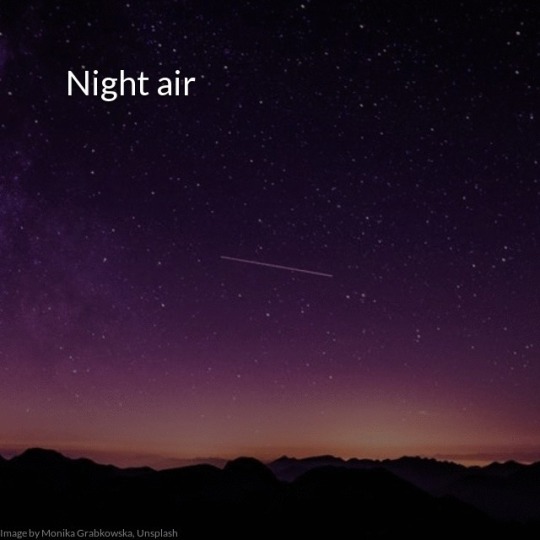
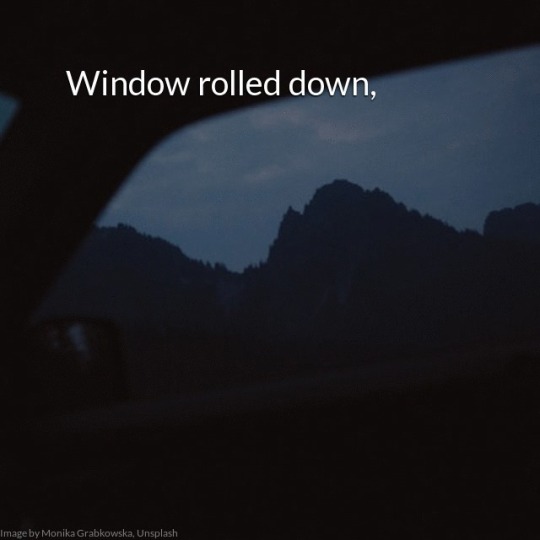
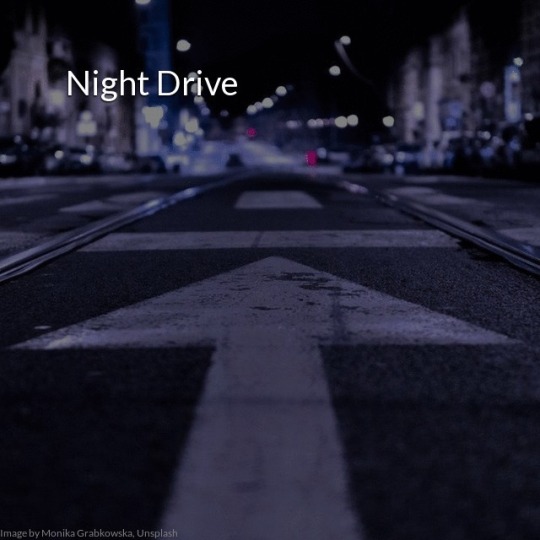
A poem about driving at night. Read it on Commaful!
Read the full story
--------------------------------
This story and photoset was made by candace on Commaful, a site where people write short stories, poems, jokes, blog posts and more in a beautiful visual format.
2 notes
·
View notes
Text
Someone new to Commaful asked for my advice. Here’s what I told them.
Hello. Welcome to Commaful. I've only been on here for about 3 months, so I still have a few things to learn myself, but here's what I've learned so far:
1. Don't undervalue interacting with others.
Take the time to respond to every comment and thank everyone who shouts out your posts. I have gained followers by thanking people for their kindness. There have been times where someone has shouted out and commented on a variety of my work, but only followed me after I took the time to respond to them. On that note, I have also gained followers by commenting nice things on their work, so do that, too. Make friends if you can; you'll often notice the same few people commenting on and shouting out your posts if they like you.
2. If you don't have confidence in your work, pretend you do.
I have seen many people say, under their work in the descriptions, something like "this sucks". Everytime I see that, I don't read that work. If the author themselves doesn't find value in what they've made, then why should I read it? Perhaps that's a little harsh, but I mentioned it because I'm sure that I'm not the only person who does this.
3. Just because it didn't get a lot of likes/comments, that doesn't mean it's not good/doesn't have value.
Do not let the lack of positive opinions from others deflate your sense of self or the worth your work has. What you make has value, no matter what others think of it. Write for yourself first.
4. Write about what interests you, especially if no one else is writing about it.
This helps keep you invested in your writing and helps you break new ground where others haven't. Creativity and taking a few risks pays off more often than not because people appreciate reading something new. Poems can be about whatever you want, so use that to your advantage.
5. You cannot know for sure what will get likes and comments and what won't, so post everything that you're proud of.
I have posted things that I thought would be great but didn't succeed, and I have posted others that I thought would fail and didn't. Take the chance. More often than not, your work is better than you think it is.
6. Write about a variety of topics.
This is probably obvious, but you will get more followers if you diversify what you write about. This plays into the way that dashboards are built when you join Commaful. Remember how it asked you to choose topics of interest to you? If you tag your relevant poems with some popular topics, then you will get lots of new followers because they see your work on their dashboard by default. It's also handy because sometimes people like to update their interests, so you can also get people who have been on Commaful for a while reading your work.
7. If you're stuck on what to write about, then the daily challenge is a good place to look.
Some of my best work has been inspired by the daily challenge, so it's always a good idea to see if the challenge inspires you. Also, writing for the challenge will give you the chance of being showcased at the side of the dashboard, which gives you more exposure than you otherwise would have. It also increases your chance of being featured in the top stories email. (Though it's important to note that not all showcased poems are top stories and not all top stories are showcased. It's kind of weird but just something I've noticed.)
Also note that you won't get many likes or comments at the start. Don't let that discourage you. Just keep posting and you'll get more attention over time.
That's my advice. I hope it helps you.
#commaful#commaful tips#writing advice#tips#poetry#poetry advice#my advice#Writing this took too long to share with only one person#so I thought I'd share it here too
3 notes
·
View notes
Text
some notes on POV
I wanted to type up a little rundown of quick n dirty writing tips based on things I see a lot in fic/ amateur original manuscripts, and, uh, it turned out that they all revolved around POV. Nailing point of view in fiction writing is both crucial and one of the least intuitive building blocks of writing to learn: an understanding of POV has been the only useful thing i took from my college creative writing classes, and god knows how long I’d have stumbled along without it otherwise.
So! I am saving you, baby writer, the trouble of slogging through a miserable writing class with a professor who’s bitter as FUCK that genre fiction sells better than his “sad white man drinking” lit fic novels. Here are some assorted writing tips/ common mistakes and how to fix them, as relating to POV:
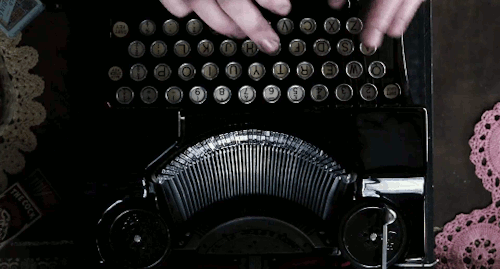
(this turned into a WALL OF TEXT so i will be using gifs to break it up)
> “I watched the ship tilt” “he saw the sky darken” “she noticed flowers growing on the rusted gate.” no. If the character who felt/saw/noticed etc is your POV character, whether in first or third, then this is called filtering and it takes the reader out of the story by subtly reminding them of the separation between the POV character and themselves. in most styles of writing, this is bad, not to mention it unnecessarily complicates your prose. try again: “the ship tilted.” “the sky darkened.” “flowers grew on the rusted gate.” Readers will instinctively understand that the POV character is witnessing the story happen, they don’t need to be told it.
I’m not telling you to never refer to your character “watching” something, of course: “I watched the birds dart around for hours,” isn’t filtering because watching is a notable activity, here, rather than an unnecessary obfuscation of the “real” thing happening. But understand how phrasing can jar readers momentarily apart from the character viewpoint, and use it with intention.
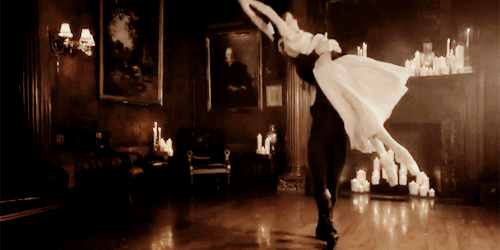
> Close Third Person POV still requires you to be mindful of your POV character. this is a rookie mistake i see allllllll the time. “Josh cried stupid tears at the beautiful display by the dancers,” is a sentence in Josh’s POV. “Stupid” tells us how he feels about the tears, “beautiful” tells us how he feels about the display. ok. all good so far. BUT.
“Josh cried stupid tears at the beautiful display by the dancers. It was everything he’d wanted from this production, from the lighting to the costumes to the exquisite choreography. Martha had to suppress a fond smile at his reaction; he was always so sweetly emotional after the curtain fell.”
Do you see what’s wrong with this paragraph? The first two sentences are Josh’s POV, and then the third one suddenly becomes Martha’s. A lot of amateur writers don’t even realize they’re doing this, which in its most egregious form is called “head-hopping,” but it’s disorienting and distracting for the reader, and makes it harder to connect with a single character. In multi-person close 3rd POV story, the POV should remain the same for an entire chapter (or at least, for an entire scene/ segment,) and change only between them. If you’re new to POV wrangling, watch your adjectives/ interiority (we’ll get to that in a second) and think “which character am I using as a lens right now, and am I being consistent" every once in a while until you get the hang of it.

> Related: let’s talk about interiority. Interiority is a more sophisticated way of thinking of a character’s “internal narration,” IE bits of prose whose job is not to advance the plot, set tone, or describe anything, (although it CAN do any of those things as well, and good prose will multitask) but to give us a specific sense of the character’s internal life, including backstory, likes, dislikes, fears, wants, and personality. In the above example paragraph, the middle sentence “It was everything he’d wanted from this production, from the lighting to the costumes to the exquisite choreography” Is interiority for Josh. It tells us that not only did he love the show, he’s very familiar with this art form and thus had expectations going in; likewise, listing the technical components is a way of emphasizing his enthusiasm while pointing out that it’s informed, implying that Josh himself is intellectually breaking down the performance even in appreciation.
“That’s a lot for a throwaway sentence you made up for an example.” Well, yeah, a little interiority goes a long way. Interiority is what creates the closeness we have to POV characters, the reason we understand them better than the non-POV characters they interact with. It’s particularly key in the first couple chapters of an original work, when we need to be sold on the character and understand the context they operate in.
If readers are having trouble connecting to or understanding the motivations of your character, you might need more interiority; if your story’s plot is agonizingly slow-moving (and you don’t want it to be) or your character is coming off as melodramatic, you might need less. It’s not something you should necessarily worry about; your amount of interiority in a WIP is probably fine, but being able to recognize it for what it is will help you be more mindful when you edit.
(Fanfic as a medium revels in interiority: that’s how you get 10k fics where nothing happens but two characters lying in bed talking and having Feelings. Or coffeeshop AUs that have literally no plot to speak of but are 100k+ long.)

> try not to describe the facial expression of a POV character, even in third person. rather like filtering, it turns us into a spectator of the character when they’re supposed to be our vessel, and since it’s *their* POV, there should be other ways available to communicate their emotion/ reactions. There are ways of circumventing this, (the example sentence where “Martha had to suppress a fond smile” is an example) where their expression is tied up in a physical action, or something done very deliberately by the character and therefore becomes something they would note to themselves, but generally, get rid of “[pov character’s] eye’s widened” and “[pov character] smiled.”
so that’s what i got! go forth and write with beautifully deliberate use of POV.
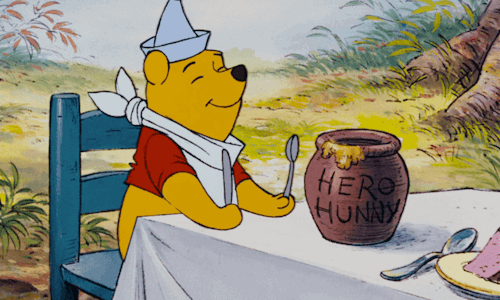
7K notes
·
View notes
Text
When I was in college, one of my professors said, “We write because we don’t feel like we belong in this world, and want to create a place for ourselves on paper” and honestly I’ve never heard something so relatable since I took that class
16K notes
·
View notes
Text
controversial writing tip
open a document and start writing
243K notes
·
View notes
Text
Garden Party
What once was
My pain
Blossomed into
A flower.
A honeysuckle of sorts,
A small and tangible being
That still has room to grow.
She said
This is your blooming time,
May you use it wisely.
From then on,
I watered myself daily.
102 notes
·
View notes
Text
Reblog if you are willing to write in-depth, significant, and valued FRIENDSHIPS.
There is so much focus on romantic/sexual relationships lately. Friendships are incredibly important for characters too, and deserve as much love and attention as romantic/sexual relationships.
21K notes
·
View notes
Text
Be cruel to your characters.
Let bad things happen to good people. Let your characters try and fail. And try again. And fail again. Let them be betrayed in the worst possible way. Let them betray others because they have no choice. Force them into situations that make them uncomfortable. Force them to argue or fight or bargain their way out. Drive them to the brink of insanity. Push them over the edge. Take everything away from them. Let them realize what they’ve lost.
Be kind to your characters.
Let faith and perseverance win out. Let love be enough. Let the Sun dry up the rain. Give them friends who will never leave. Let someone save them before the axe falls. Acquit them of false accusations. Give them the strength to stand up again. And again. When they’ve lost hope, give them something to believe in. Remind them there’s good in the world. Remind them there’s good in them, too. Surprise them. Make them laugh until they cry. Teach them that they can’t be broken.
Most importantly: balance.
Even the darkest tragedy has its moments of light; if your reader has no hope that things will get better, if your character doesn’t learn or become stronger for their suffering, the story becomes meaningless pain. Likewise, not only is it unrealistic for a character to go through life never encountering conflict or sadness, it’s boring. Not every conflict has to be life-or-death in order to be meaningful. Give your characters and your plots high points and lows; just make it real for them.
21K notes
·
View notes
Quote
…Those who really love, love in silence, with deeds and not with words.
Carlos Ruiz Zafón, The Shadow Of The Wind
(via the-book-diaries)
512 notes
·
View notes
Photo
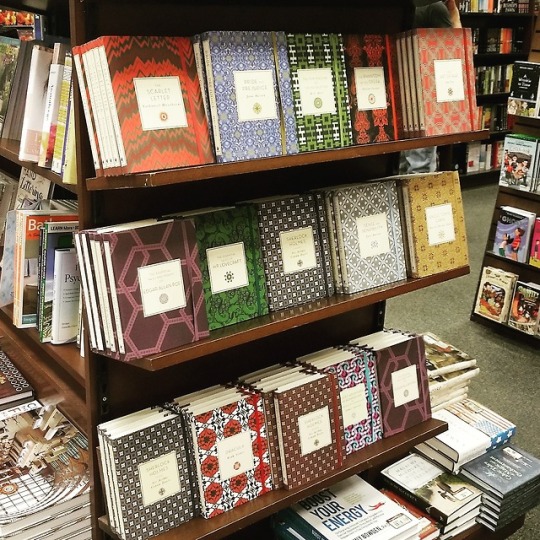
Love the new Barnes and noble classics!
960 notes
·
View notes
Quote
Sometimes the person you want most is the person you’re best without.
(via love-diaries)
757 notes
·
View notes
Quote
But no price is too high to pay for the privilege of owning yourself.
Friedrich Nietzsche, Beyond Good and Evil
(via the-book-diaries)
263 notes
·
View notes
Photo
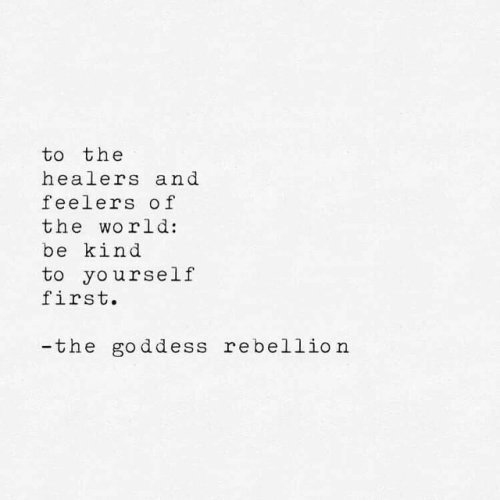
https://www.instagram.com/thepersonalquotes/
601 notes
·
View notes
Quote
My heart has always beat thunderstorms instead of blood.
Gabriel Gadfly, Supercell
(via books-n-quotes)
1K notes
·
View notes
